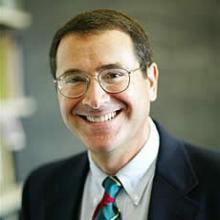Donald Trump: the Politics of Fear and Violence
It was Mitch McConnell, after all, who committed his party to making the Obama Administration a one-term phenomenon. The Republican Establishment started this fire, and it needs now to put it out. The Republican Establishment needs to break, even at this late stage, from a candidate who does not embody its values, and whose incipient authoritarianism threatens the democratic rights of us all. The national Republican leadership also needs to make it clear that the up-coming general election is not rigged – and certainly not rigged against Donald Trump – and in truth, that shouldn’t be too difficult a task for them to do if they are honest, given that any voter suppression currently going on is Republican-inspired."
American presidential politics is always a contact sport. The stakes are invariably so high that being polite to the opposition is normally difficult, and is often honored only in the breach. The 2012 “there is a village in Kenya that is missing its idiot” bumper sticker offended me at the time for its ongoing birtherism and for its underlying racism; but I was obliged to remember its earlier and softer equivalent when George W. Bush was President – the one about the existence of a similar village problem in Texas. So, in that election cycle at least, I had to cut Republican supporters a certain degree of slack.
But this time round, the bumper stickers are worse – often much worse – and they are in large measure because in 2016 conservative animosity to both the current and likely next president is so intense. The 2016 election cycle is fuelled by a level of anger in and around the base of the Republican Party that is way in excess of any thing found in Republican circles in 2012. It is also an anger that has no parallel in and around the base of the Democratic Party. It is true that, as a party, the Democrats in 2016 remain divided. There are still many disgruntled Sanders supporters out there who are frustrated with Hillary Clinton; but that frustration does not stretch out to any equivalent fury with their Republican opponents. The Republicans in convention in Cleveland were full of anger and despair at the current state of American domestic and foreign policy. The Democrats in Philadelphia were not; and that difference between the two parties is now coloring the way in which each party is approaching the clash between candidates as the general election approaches.
Driving through West Virginia earlier this August, I followed a truck bedecked in confederate insignia, with a bumper sticker that read: “Donald Trump to the White House. Hillary Clinton to the Jail House. Bernie Sanders to the Nut House. Barack Obama to the Out-House.” The ugliness of that message, and the underlying hostility to leading Democrats that it reflected, shook me into a new realization – the realization of just how dangerous are the times in which we now live – and it made me fearful (and not just worried) about the outcome of election in November.
I find myself afraid of what might follow if Donald Trump actually wins In November, and equally fearful of what might follow if he loses. I recall no such fears in 2012, or in 2008, or even in the tightly-fought presidential election that Al Gore lost to George W. Bush. The big difference this time appears to be the presence of Donald Trump himself. The content of his campaign, and of his style of campaigning, is bringing qualitatively new and deeply troubling issues into the center of American politics, and is raising new dangers for all of us, regardless of whether we actually support him or not. Those dangers need to be recognized, and addressed, before their impact is too embedded to be reversed: hence what follows.
I
There is a pattern in the developing story of the Trump campaign that has moved me, and many other progressives whom I know, from a state of “indifference and irritation” to that of “anxiety and fear.” The pattern has the following stages.
Progressive indifference and irritation was initially simply a response to the series of ludicrous and over-blown claims with which Donald Trump began his campaign. As I’m sure we all remember, from the very outset of his pursuit of the presidency, Donald Trump presented himself as poised to become the greatest ever – the “greatest jobs president that God ever created,” the greatest builder of a border wall (“nobody builds walls better than me,”), the greatest negotiator of new trade agreements, and so on.[1] Indifference seemed to be a legitimate first response to all that self-promotion, because it was hard to imagine that Republican primary voters would take such hyperbolic promises seriously. But indifference increasingly gave way to irritation when support for Trump grew in Republican circles. Indifference gave way to irritation too when, in order to justify his promise to make “America Great Again”, Donald Trump regularly talked America down; regularly blamed all contemporary ills on the Obama Administration in general and on Hillary Clinton in particular; and regularly left the impression that previous Republican presidents, and the current Republican Party, held no responsibility for the bleakness of the America that Donald Trump claimed that he, and he alone, could lift to glory again. Irritation, that is, triggered by the unique Trump combination of narcissism and distorted history.
That level of irritation and outrage has intensified over time, precisely because many of the core assertions on which the Trump campaign is built continue to be false. It is not the case, for example, that “crime is going through the roof because of illegal immigration,” no matter how often the candidate asserts that it is.[2] It isn’t even true that net migration across the southern border is excessive, out-of-control, and in need of a wall – regardless of who will build and pay for that wall.[3] But facts don’t automatically matter in this campaign, because if data gets in the way it is always possible to retreat to one of the many conspiracy theories to which Donald Trump and his supporters have become increasingly prone.[4] In 2011/12, Trump was a leading voice in the birther movement, and the accusation at the heart of that movement has never been more than obliquely denied by him even to this day. For there is a pattern here: of lying and then quietly recanting some of the lies, a pattern that reinforces ignorance and prejudice by working on the premise that the lie, if repeated often enough, will be remembered while the single recantation will be forgotten or ignored. The most recent manifestation of that pattern is a case in point. Donald Trump insisted repeatedly in early August that Barack Obama actually founded ISIS. He even doubled-down on the claim when first challenged by a conservative radio host keen to provide him with a retreat route; only quietly to repackage the claim as “sarcasm” when the doubling-down failed to bite.[5] There is an indifference to evidence, a scorn for experts, and a propensity for paranoia at the very heart of the Trump campaign, all of which does not augur well for the quality and veracity of any Trump Administration should such a phenomenon come into existence.
Then there was (and remains) the question of Donald Trump’s past as a businessman and what that tells us about his potential as a President. He likes to present himself as an outsider to the Washington establishment and as the champion of the underdog, as the man who knows how to make businesses work, and how to end the adverse consequences of outsourcing. His own personal story is, however, in considerable tension[6] with those claims. Donald Trump began his working life with a huge injection of cash from his father. He built a business empire partly on outsourcing, partly on exploiting the post-2008 housing problems of less financially-cushioned Americans, and partly on the full use of existing bankruptcy laws. The university he created has been widely criticized as a scam;[7] and as a controversial business figure Donald Trump has often been the subject of substantial damage claims pursued in the courts.[8] It is hard to think of Donald Trump as the champion of small business owners when in the past bankruptcies have protected his wealth at the expense of certain of his small-scale creditors; and it hard for him credibly to criticize outsourcing when products bearing his name have been so regularly made abroad. Not that such contradictions automatically stop him. On the contrary, they often do not. There was, for example, that moment of sheer ludicrousness when Donald Trump presented himself as an expert on the national debt and its reduction – proposing to reduce it by $19 trillion in just eight years – offering as evidence of that expertise his own capacity to escape debt by the use of American bankruptcy laws, as though personal debt and public debt were simply two forms of the same thing.[9] There was another such moment when Donald Trump presented himself as the best president to end corruption in Washington by emphasizing just how many times his campaign contributions had opened access for him to politicians in Washington![10] “Poacher turned game-keeper’ stories have their place in contemporary fiction, but hardly ought to figure high on the resume of a potential US president. They do, however, for this one.
Among progressives at least, the sense of outrage has grown the more that Donald Trump has demonstrated, by what he has said and by how he has acted, that his mind-set was and is riddled with bigotry. Some of that bigotry is visibly sexist[11] – his treatment of Megyn Kelly made that clear very early on – a sexism that his appointment of Roger Ailes as his debate-coach recently reconfirmed. Add to that the racism that pervaded Donald Trump’s opening remarks about Mexican immigrants, and his later treatment of the few African-American voters attending his rallies – not to mention the gross insensitivity of his latest appeal to African-American voters (“vote for me…what have you got to lose?”[12]) – and it becomes increasingly obvious why his core support lies in that section of the white working class most hostile to minority rights old and new. Donald Trump may now be willing to apologize in general terms for some of these earlier remarks and actions, but his critique of Judge Gonzalo Curiel,[13] his condemnation of the Khan family, and his anti-Muslim rhetoric and ban[14] all have to be added to the debit side of his bigotry account. Time and again, more seasoned campaigners within his own entourage have urged him to pivot on just this point – to moderate the substance and presentation of his bigotry – but pivoting is clearly not Donald Trump’s strength. Instead, his remains a powerful voice legitimating a general distrust of Muslim, Hispanic and Black Americans – with Muslim Americans increasingly treated by his predominantly white working-class base as a threat to core American values and security, and Hispanic Americans treated as disproportionately prone to sexual violence, illegal entry and the undercutting of American wages.
Perhaps some of this would matter less if Donald Trump had not also surrounded himself with some highly problematic characters, and been so slow and reluctant to distance himself from some of the more racist and bigoted of his followers. His initial response to the support given by David Duke – “I don’t know the guy. I don’t believe I’ve ever met him”[15] – lacked credulity, and gave succor to those on the white nationalist right who now see in Trump an avenue to greater influence in Washington.[16] His choice of senior figures – and the regularity with which they are then shed – does not augur well for either the expertise or the stability of any incoming Trump Administration; especially given the dubious background of several key advisors. You have only to think of the Ukrainian-links of Paul Manafort,[17] not to mention the Breitbart News background of Stephen Bannon, to see a propensity here for the pursuit of advice from the darker corners of the broad Republican coalition.[18] Donald Trump himself has admitted a partiality for strong political leaders abroad – Vladimir Putin in particular has figured regularly in this litany, but so too briefly did Saddam Hussein – all of which feeds into a fear, in less conservative circles, that Donald Trump has a propensity for authoritarianism that might put him in tension with basic principles of the American constitution. As recently as last March, if the data in a HuffPost/YouGov poll is correct, half the US electorate already saw “fascist overtones” in Donald Trump’s campaign, and that half included 45 percent of Independents and a full 28% of Republican voters.[19]
Some of those who know Donald Trump best are on record as doubting his suitability to be President, cited issues of character and mental stability. Robert Kagan, for example, has argued that there is “something very wrong with Donald Trump…that he cannot control himself” and that he “feels he must respond to every criticism he receives by attacking and denigrating the critic, no matter how small and inconsequential.”[20] Donald Trump is already on record as advocating waterboarding of terrorist suspects and the carpet bombing of Iraq.[21] Perhaps that was why George Shultz, when asked about the prospect of Trump presidency, simply said “God help us!” It is also perhaps why Robert Kagan was among one of a hundred Republican foreign-policy and national security specialists who wrote an open letter to Donald Trump telling him of their determination to “work energetically to prevent the election of someone so utterly unfitted to the office.”[22] Fear of Donald Trump’s finger on the nuclear button is certainly why Donald Trump’s co-author of The Art of the Deal recently expressed public remorse for helping to promote the career of someone he now calls “a sociopath.”[23] And we should all be afraid of that occurrence – for many have seem such a level of narcissism in the Trump character as to fear that he is already engaged in what David Cohen called stochastic terrorism – terrorism of the kind that led in an earlier decade and a different place, as Thomas Friedman has argued, to the assassination of Yitzhak Rabin.[24] For Trump now, like Rabin’s critics earlier, is engaged in a campaign to so delegitimize his opponent that should she win in November, he will be able to claim that the election was a fraud and some of his supporters will be able to conclude that – because the election was stolen – the victor must not be allowed to prevail. Donald Trump constantly labels his opponent as “crooked Hillary.” He constantly urges/allows his crowds to demand that she be jailed; and now he “jokes”(?) about a Second Amendment solution. As David Cohen put it, “Trump puts out the dog whistle knowing that some dog will hear it, even though he doesn’t know which dog.”[25]
Which brings us to the heart of why some of us are now afraid. For Donald Trump’s campaign not only stokes the flames of bigotry in this country, it also stokes the flames of violence in the defense of that bigotry. Examples abound of the belittling labels into which Donald Trump easily settles as a way of demeaning opponents – a kind of verbal lack of respect that discredits Marco Rubio as “Little Marco,” Jeb Bush as “low energy,”” or Elizabeth Warren as “Pocahontas”.[26] Examples abound too of violence at Trump rallies, and of the candidate’s own propensity to encourage rough treatment of critics by supporters in his audience: “beating the crap” out of protesters was one of his recommendations, offering to pay the legal fees of anyone “knocking the crap” out of protesters was another.[27] Stories abound of journalists being excluded from attendance at those rallies after writing copy critical of Donald Trump and his campaign: among the most egregious of those was the treatment of Katy Tur.[28] Yet even that pales into insignificance when set against the suggestion by Donald Trump’s adviser on veteran affairs that Hillary Clinton “should be put in the firing line and shot for treason;”[29] and Donald Trump’s own public speculation that, should Hillary Clinton win the presidency, Second Amendment folks would be left able to stop her stacking the Supreme Court with anti-gun advocates. Leaving aside the fact that no such stacking is likely or planned, it is impossible to ignore the invitation to violence that those remarks contained. Donald Trump may deny any such intention, but in politics at this level words have consequences. He may deny he sent out such an invitation, but some elements in his mobilized and angry base may feel obliged to accept it anyway. That has to be the fear.
II
The Trump threat to peace abroad and to civil liberties at home is too great to be ignored. The violence beneath the surface of American life to which he is adding fire is too potent a threat to be discarded lightly. And the main responsibility for dousing the flames, before they ignite, has to lie with the rest of the Republican Party, and particularly with its national leadership. For Donald Trump did not invent the strategy of de-legitimating a sitting President. That strategy has been the guiding plank of Republican policy ever since Barack Obama took office. It was Mitch McConnell, after all, who committed his party to making the Obama Administration a one-term phenomenon. The Republican Establishment started this fire, and it needs now to put it out. The Republican Establishment needs to break, even at this late stage, from a candidate who does not embody its values, and whose incipient authoritarianism threatens the democratic rights of us all. The national Republican leadership also needs to make it clear that the up-coming general election is not rigged – and certainly not rigged against Donald Trump – and in truth, that shouldn’t be too difficult a task for them to do if they are honest, given that any voter suppression currently going on is Republican-inspired. Democrats want the people to vote. It is Republicans who fear minority voting most.
This is no time to be partisan. It is time to put the needs of the country first. Vote Republican down the ticket if that is your politics, but do not send this man to the White House.
Arguments in this posting have been developed in earlier ones: including
· Taking Donald Trump Seriously
· How Best to Separate Donald Trump from his Base
· Working Class Anger and the Problem of Progressive Politics
· The Democrats and the Donald
·
All at www.davidcoates.net
[1] National Review, Donald Trump’s Eight Best Lines Ever, posted August 31, 2015: available at http://www.nationalreview.com/article/423003/trumps-superlatives-mark-antonio-wright
[2] Michele Ye Hee Lee, “Donald Trump’s unsupported claim that ‘crime is through the roof’ because of illegal immigration,” Washington Post, May 13, 2016: available at https://www.washingtonpost.com/news/fact-checker/wp/2016/05/13/donald-trumps-unsupported-claim-that-crime-is-through-the-roof-because-of-illegal-immigration/
[3] Todd Miller, The Great Mexican Wall Deception, posted on Tomgram, August 23, 2016: available at http://www.tomdispatch.com/post/176179/tomgram%3A_todd_miller,_the_great_mexican_wall_deception/
[4] Brian Tashman, 58 Donald Trump Conspiracy Theories and Counting: The Definitive Trump Conspiracy Guide, posted on Alternet.org, May 30, 2016: available at http://www.rightwingwatch.org/content/58-donald-trump-conspiracy-theories-and-counting-definitive-trump-conspiracy-guide
[5] Editorial,” An Even Stranger Donald Trump,” The New York Times, August 11, 2016: available at http://www.nytimes.com/2016/08/12/opinion/an-even-stranger-donald-trump.html?_r=0
[6] Suzanne Craig, “Trump’s Empire: A Maze of Debts and Opaque Ties,” The New York Times, August 20, 2016: available at http://www.nytimes.com/2016/08/21/us/politics/donald-trump-debt.html
[7] Michael Barbaro and Steve Eder, “Former Trump University Workers Call the School a ‘Lie’ and a ‘Scheme’ in Testimony,” The New York Times, May 31, 2016: available at http://www.nytimes.com/2016/06/01/us/politics/donald-trump-university.html
[8] Michael Isikoff, How Trump could turn the presidency into a ‘litigation circus’,” posted at yahoo.com, August 30, 2015: available at https://www.yahoo.com/news/how-trump-could-turn-the-presidency-into-a-127901460096.html
[9] Glenn Kessler, “Trump’s nonsensical claim that he can eliminate $19 trillion in debt in eight years,” The Washington Post, April 3, 2016: available at https://www.washingtonpost.com/news/fact-checker/wp/2016/04/02/trumps-nonsensical-claim-he-can-eliminate-19-trillion-in-debt-in-eight-years/
Max Ehrenfreund, “’King of Debt’ Donald Trump says he knows how the U.S. might get out of paying it all back,” The Washington Post, May 6, 2016: available at https://www.washingtonpost.com/news/wonk/wp/2016/05/06/king-of-debt-donald-trump-says-he-knows-how-the-u-s-might-get-out-of-paying-it-all%E2%80%8B-back/
Paul Krugman, “The Making of an Ignoramus,” The New York Times, May 9, 2016: available at http://www.nytimes.com/2016/05/09/opinion/the-making-of-an-ignoramus.html
[10] The deal struck with Chris Christie around tax owed to New Jersey is a case in point. On this, see Russ Buettner, “Trump Casinos’ Tax Debt Was $30 Million. Then Christie Took Office,” The New York Times, August 16, 2016: available at http://www.nytimes.com/2016/08/17/us/politics/trump-chris-christie-casinos.html
[11] Michael Barbaro and Megan Twohey, “Crossing the Line: How Donald Trump Behaved With Women in Private,” The New York Times, May 14, 2016: available at http://www.nytimes.com/2016/05/15/us/politics/donald-trump-women.html
[12] Janet Allon, 5 Sick Right-Wing Moments This week: Giuliani Suffers Brain Meltdown, posted on Alternet.org August 21, 2016: available at http://www.alternet.org/5-sick-right-wing-moments-week-giuliani-suffers-brain-meltdown
[14] Ed Pilkington, “Donald Trump calls to ban all Muslims from entering America,” The Guardian, December 8, 2016: available at https://www.theguardian.com/us-news/2015/dec/07/donald-trump-ban-all-muslims-entering-us-san-bernardino-shooting
[15] Alexandra Petri, “If Donald Trump disavowed other groups the way he disavowed the KKK,” The Washington Post, March 1, 2016: available at https://www.washingtonpost.com/blogs/compost/wp/2016/03/01/if-donald-trump-disavowed-other-groups-the-way-he-disavowed-the-kkk/?utm_term=.20e336993f25
[16] David Weigel, “’Racialists’ are cheered by Trump’s latest strategy,” The Washington Post, August 20, 2016: available at https://www.washingtonpost.com/politics/racial-realists-are-cheered-by-trumps-latest-strategy/2016/08/20/cd71e858-6636-11e6-96c0-37533479f3f5_story.html
[17] Andrew Emmett, Paul Manafort Quits Trump Campaign Amid Multiple Controversies, posted on The Nationof change, August 22, 2016: available at http://www.nationofchange.org/2016/08/19/paul-manafort-quits-trump-campaign-amid-multiple-controversies/
[18] Adele M. Stan, 11 Dangerous Right-Wing Kooks, Cranks and Operatives Surrounding Donald Trump, posted on Alternet.org, August 19, 2016: available at http://www.alternet.org/election-2016/11-right-wing-kooks-cranks-and-dirty-tricksters-around-donald-trump
[19] Ariel Edwards-Levy, Half The Country Sees ‘Fascist Undertones’ in Donald Trump’s Campaign: New Survey, posted on HuffPost March 19, 2016: available at http://www.huffingtonpost.com/entry/donald-trump-events-violence_us_56ec383ee4b084c672201de4
[20] Robert Kagan, “There is something very wrong with Donald Trump,” The Washington Post, August 1, 2016: available at https://www.washingtonpost.com/opinions/there-is-something-very-wrong-with-donald-trump/2016/08/01/73809c72-57fe-11e6-831d-0324760ca856_story.html?utm_term=.b5fe8449e0d0
[21] Rebecca Gordon, “American Presidential Candidates Are Now Openly Promising to Commit War Crimes,” The Nation, January @016: available at http://www.tomdispatch.com/blog/176087/tomgram%3A_rebecca_gordon,_american_war_crimes,_yesterday,_today,_and_tomorrow/
[22] Open Letter on Donald Trump From GOP National Security Leaders, posted March 2, 2016: available at http://warontherocks.com/2016/03/open-letter-on-donald-trump-from-gop-national-security-leaders/
[23] Sarah Lazare, Trump’s co-Author Speaks: Donald is a Sociopath, posted on Alternet.org, July 18, 2016: available at http://www.alternet.org/election-2016/trumps-co-author-speaks-donald-sociopath
[24] Thomas Friedman, “Trump’s Wink Wink to ‘Second Amendment People’,” The New York Times, August 9, 2016: available at http://www.nytimes.com/2016/08/10/opinion/trumps-ambiguous-wink-wink-to-second-amendment-people.html
[25] David S. Cohen, “Trump’s Assassination Dog Whistle Was Even Scarier Than You Think,” Rolling Stone, August 8, 2016: available at http://www.rollingstone.com/politics/features/trumps-assassination-dog-whistle-was-scarier-than-you-think-w433615
[26] https://www.washingtonpost.com/news/fact-checker/wp/2016/06/28/why-donald-trump-calls-elizabeth-warren-pocahontas/
[27] Kali Holloway, Donald Trump Is a Menace to American Society, Presidential Candidate or Not, posted on Alternet.org, August 15, 2016: available at http://www.alternet.org/election-2016/donald-trump-menace-american-society-presidential-candidate-or-not
[28] Katy Tur “My Crazy Year with Trump,” MarieClaire, August 22, 2016: available at http://www.marieclaire.com/politics/a21997/donald-trump-katy-tur/
[29] Scott Bixby, “Senior Donald Trump adviser: Hillary Clinton ‘should be shot for treason’,” The Guardian, July 20, 2016: available at https://www.theguardian.com/us-news/2016/jul/20/trump-adviser-al-baldasaro-hillary-clinton-firing-line

















